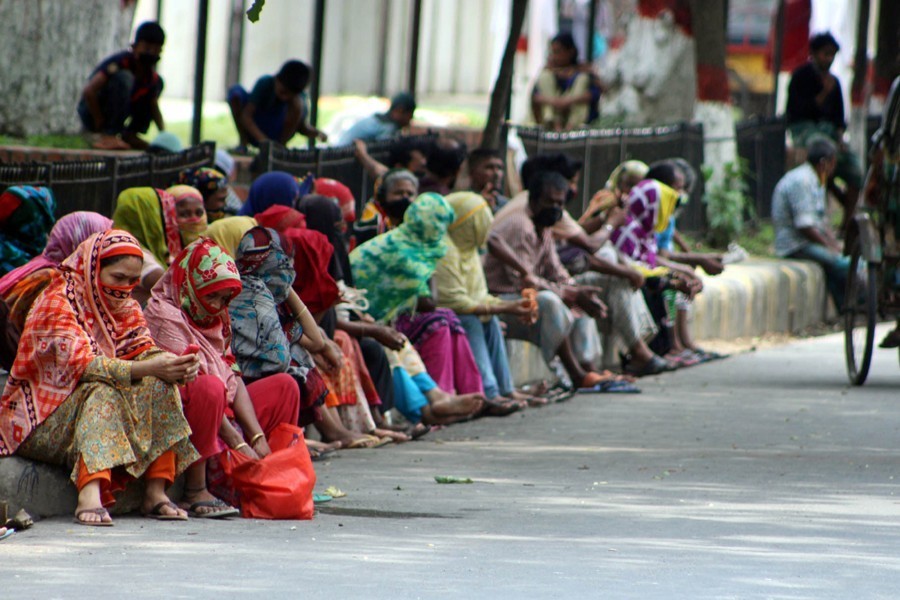The Bangladesh Bank has extended the tenure of the Tk 30-billion revolving refinance scheme for low-income people, farmers and marginal or small businesses to borrow low-cost funds by another year to June 30, 2023.
Loans under the scheme will be disbursed through non-governmental organizations-microfinance institutions (NGO-MFIs) operations, according to a Bangladesh Bank circular issued Thursday to this effect.
The central bank extended tenure of the scheme in aid to corona-hit low-income groups and small businesses as the Covid-19 is still taking its toll on the lower order of society by way of squeezes on jobs and incomes.
The first phase of the scheme ended on June 30, 2021. The second phase is due to end on June, 2022.
"Affected farmers and marginalized traders would also be eligible for the low-cost credits," says the BB in the guidelines on operations of the special lending arrangement, in addition to the previous stimulus packages disbursed through banks which the down-and-outs could hardly reach.
According to amended terms of conditions of the scheme, interest rate for the borrowers has been set at 9.0 per cent with a grace period of three months to six months, while the MFIs to get the money at 3.0-per cent rate from the scheduled banks.
The three-month grace period could be fixed as one month if both parties agreed.
As per the new guidelines, the central bank will disburse the funds to scheduled banks at a rate of 0.5-per cent interest.
Previously, the central bank had disbursed funds to the banks at 1.0-per cent interest and MFIs got at 3.5 per cent from the banks.
The microcredit firms or NGOs usually charge up to 24 per cent for their investment as microcredit.
Amended guidelines also say the Microcredit Regulatory Authority (MRA) will certify an MFI about their financial capability for the loans under the scheme.
"The NGOs are asked to apply discounted interest rate on the borrowers," the circular says.
Except for admission fee, passbook, loan-application form and non-judicial charges, the NGOs would not be allowed to impose any other charges on the borrowers.
The microcredit entities have been allowed to collect loan installments on weekly or monthly basis after the three-month grace period while the NGOs will have to repay the banks in quarterly installment.
Simultaneously, the banks concerned would have to repay the central bank on a quarterly basis, elaborated the BB guidelines. "The responsibility of the loan recovery would rest solely on MFIs and banks concerned," the BB says in the guidelines.
Low-income people, farmers and marginal or micro-businesses would get loans for their income-driven purposes, it clarified.
For an individual, the borrowing limit from NGOs has been set at Tk75,000 and the limit for a group of at least 5 individuals at Tk 300,000.
NGOs' lending limit to a single small entrepreneur is Tk 1.0 million while the limit is Tk 3.0 million for joint project of a group of at least 5 members. The borrowing capacity would increase proportionately with the increase in the number of members in any group.


